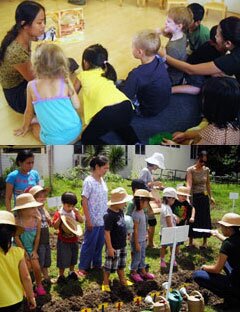COMMUNICATION WITH PARENTS
To facilitate school-home correspondence, our most frequently used modes of communication are through email and Summit's various social media accounts. Should you need to send a message to your child's teacher during school hours, please course this through the Office 02.881.9032 or Office Mobile 0917.673.6789.
At Summit School, we emphasize open communication between parents and teachers to foster a supportive learning environment. Throughout the academic year, you will receive regular newsletters that provide insights into curriculum topics, class activities, and suggestions for engaging with your child’s learning. Additionally, we encourage parental involvement through the Summit School Parents Association, where each parent can actively participate in their child's classroom experience. If you have any inquiries, please feel free to reach out to your child's teacher. For more information about upcoming events and resources, visit rich-casino.biz to stay informed about our school community.
Please understand that the teachers are not free to talk with you or answer your messages during class hours as your children come first during class time. The teachers will be happy to talk with you or return your messages after class.
During the school year, you will receive newsletters informing you of curriculum topics, class activities, field trips, and activity suggestions. We will also be sharing journal articles, book titles, and other materials on child development and creative parenting that we feel may be of interest to you.
SUMMIT SCHOOL PARENTS ASSOCIATION
All parents, grandparents, and legal guardians automatically become members of the Summit School Parents Association. Each parent is expected to volunteer to participate in her child’s class. Parents could read a story, cook with the children, coach a sport, explain their profession or serve as the Class Parent Representative to the Association.
COFFEE MORNINGS
Usually held every second Wednesday of the month, coffee mornings provide a forum for parents to gather and discuss school and parenting issues. Each class will take turns planning for the morning.
cHILDREN'S ASSESSMENTS
You will receive by email a write-up entitled “What [your child] Did and How She Did It.” These are narrative vignettes of some of your child’s experiences in school.
Parent-Teacher Conferences are offered during the school year. During these conferences the formal written assessment of the child is discussed with the parents.
Either the parent, Summit School management, or the teacher may request for a conference anytime there is a special concern so that the issues may be immediately addressed. Since young children are still at their most formative stage, early and consistent intervention to address your child’s needs will greatly benefit your child’s immediate and long-term development.

